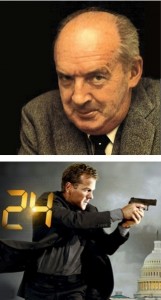Share it
 Any advocate seeking to venture into the Supreme Court now has the advantage of being able to watch and learn from others and see the Justices’ reactions , courtesy of the new televised link.
Any advocate seeking to venture into the Supreme Court now has the advantage of being able to watch and learn from others and see the Justices’ reactions , courtesy of the new televised link.
What is harder to discern is what the Justices think of written advocacy. What do they find helpful? What do they find annoying? How much does the writing style influence the outcome?
The American Society of Legal Writers has now published a series of interviews with the US Supreme Court Justices that took place some years ago on this topic. The full interviews are now available in pdf form here:
Unsurprisingly, the overwhelming theme is the need for brevity. Several of the Justices also make clear their distaste not just for ‘legalese’, but also for the use of hackneyed phrases or metaphors that are now cliche.
The interviews also reveal that the well known differences between the US Supreme Court Justices in their legal conclusions, is equally pronounced in their literary reference points:
Justice Ginsberg, for example, recalled how taking an undergraduate class in European literature, taught by none other than Vladimir Nabokov, still influences her approach to what she reads and writes.
In stark contrast, Justice Thomas compared what he regards as the most important part of the brief – the summary – to watching an episode of the TV action thriller ’24’.



1 comment
Paul MacMahon said:
27/05/2011 at 15:09
UKSC Blog readers might be interested in this further response to the interviews, also from this side of the Atlantic:
http://www.extempore.ie/2011/05/27/us-supreme-court-justices-give-their-thoughts-on-legal-writing/